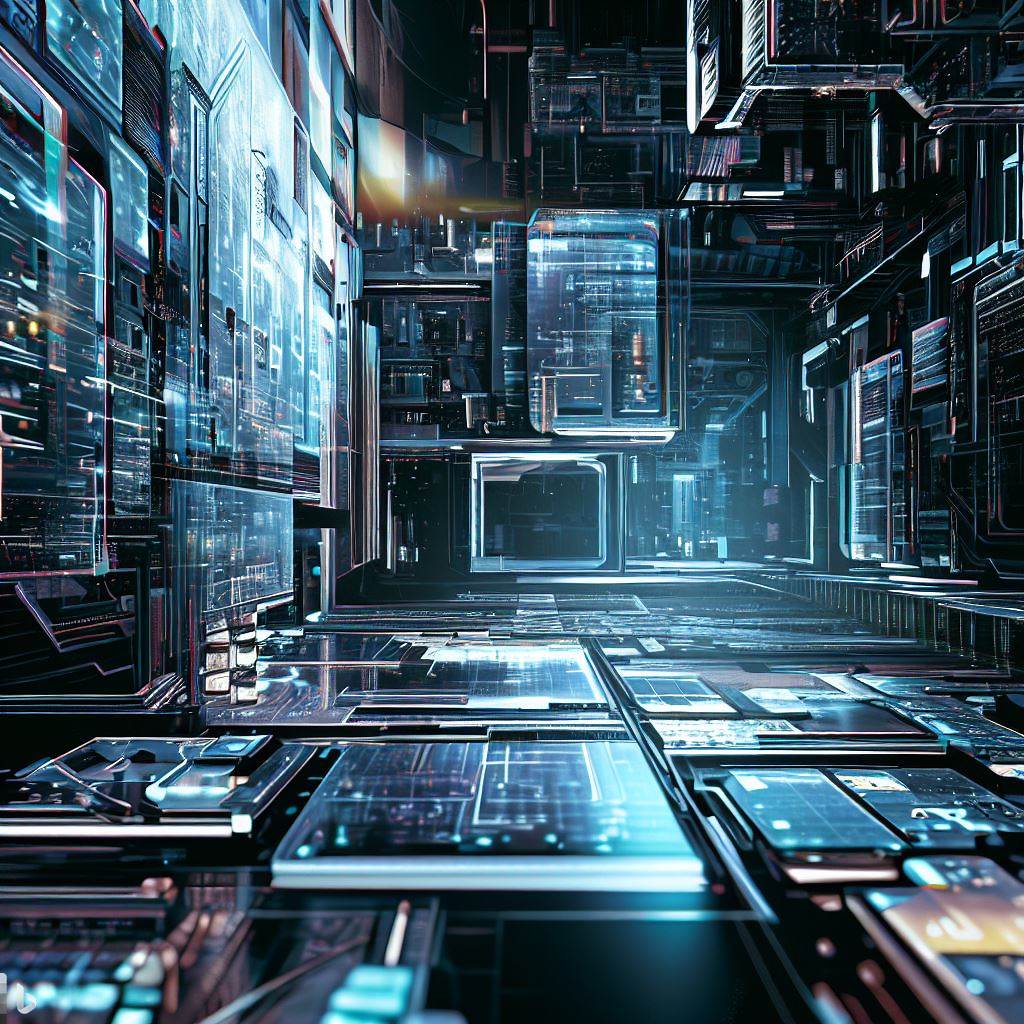
The realm of computers has witnessed an evolutionary journey, from colossal mainframes to pocket-sized smartphones. Given the trends and trajectories, here’s a speculative take on what the future might hold for computers:
1. Quantum Computing:
- Quantum computers, harnessing the principles of quantum mechanics, are poised to perform calculations at unimaginable speeds. They’ll be particularly suited for complex problems, like optimizing financial models or simulating intricate biological systems.
2. Neuromorphic Computing:
- Computers that mimic the structure and function of the human brain, leveraging artificial synapses, will offer enhanced pattern recognition and decision-making abilities.
3. Edge Computing:
- Instead of centralized data centers, computational tasks will be performed closer to the source of data, like IoT devices. This will reduce latency, ensuring real-time processing and increased privacy.
4. Energy Efficiency:
- With the limitations of silicon becoming apparent, research into alternative materials like graphene will become paramount. The aim will be to make computers faster, smaller, and more energy-efficient.
5. Augmented Reality (AR) & Virtual Reality (VR):
- Computers will not just be limited to screens. Immersive experiences through AR & VR will redefine user interaction, potentially replacing traditional monitors.
6. Natural User Interfaces:
- Gesture controls, voice recognition, and even brain-computer interfaces (BCIs) could transform how we command and interact with computers.
7. Self-Healing Systems:
- Computers will possess the capability to diagnose and repair their hardware and software issues, minimizing downtime.
8. Integrated AI:
- AI won’t just be a software component; it’ll be integrated into the hardware of computers, making them inherently smarter and more adaptable.
9. Molecular and Biological Computers:
- Harnessing DNA and biological processes for computation could give rise to computers with storage and processing capabilities far beyond silicon-based systems.
10. 3D and Holographic Displays:
- Flat screens might become obsolete, replaced by spatial displays that provide more information and depth.
11. Security:
- As cyber threats evolve, so will computer security. Expect advancements in encryption, biometric security, and decentralized systems.
12. Ubiquitous Computing:
- The line between a “computer” and everyday objects will blur. Everything from mirrors to countertops could have computational abilities, ensuring seamless integration of technology in our daily lives.
13. Personalization:
- With AI and Machine Learning, computers will adapt more to individual users, predicting their needs and tailoring interfaces and applications to personal preferences.
14. Interconnected Ecosystems:
- Devices won’t work in isolation. They’ll be part of a broader interconnected ecosystem, enhancing synchronicity and workflow.
15. Open Source and Decentralization:
- Open-source software and decentralized systems may gain prominence, providing transparency and community-driven advancements.
In essence, the future of computers is not just about faster processors or more storage. It’s about reimagining what a computer is and reshaping our relationship with technology. The machines of the future will likely be more intuitive, immersive, and inherently in tune with human needs and desires.
